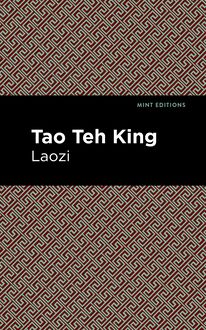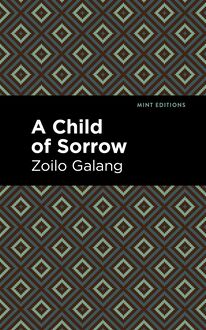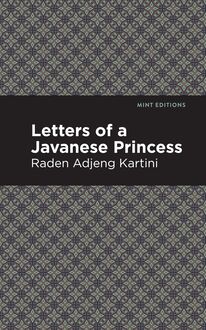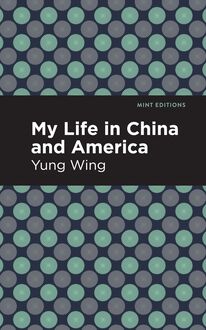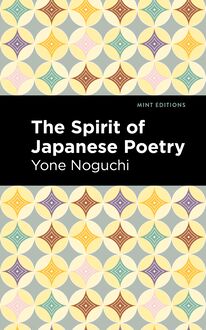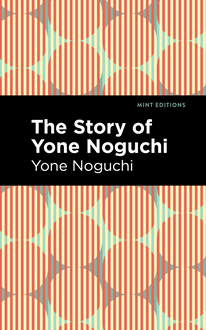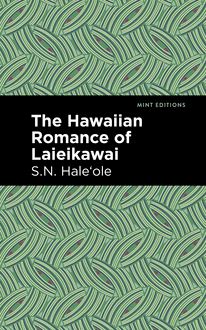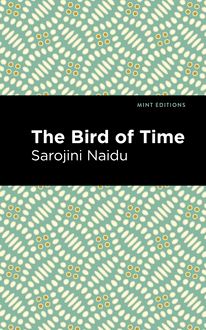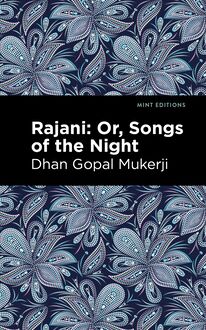-
 Univers
Univers
-
 Ebooks
Ebooks
-
 Livres audio
Livres audio
-
 Presse
Presse
-
 Podcasts
Podcasts
-
 BD
BD
-
 Documents
Documents
-
- Cours
- Révisions
- Ressources pédagogiques
- Sciences de l’éducation
- Manuels scolaires
- Langues
- Travaux de classe
- Annales de BEP
- Etudes supérieures
- Maternelle et primaire
- Fiches de lecture
- Orientation scolaire
- Méthodologie
- Corrigés de devoir
- Annales d’examens et concours
- Annales du bac
- Annales du brevet
- Rapports de stage
La lecture à portée de main
Vous pourrez modifier la taille du texte de cet ouvrage
Découvre YouScribe en t'inscrivant gratuitement
Je m'inscrisDécouvre YouScribe en t'inscrivant gratuitement
Je m'inscrisEn savoir plus
Vous pourrez modifier la taille du texte de cet ouvrage
En savoir plus

Description
The Story of Yone Noguchi (1914) is a memoir by Yone Noguchi. Both a leading modernist poet in English and Japanese and a dedicated literary critic who advocated for the cross-pollination of national poetries, Yone Noguchi lived an extraordinary life. In clear prose and with a confidence earned through decades of dedication to literature, he tells his own story and reflects on his unique experiences while illuminating the influential people and places that shaped him.
Noguchi began studying English as a child, and soon fell in love with the language and its literature. For years, he dreams of leaving Japan to experience life in the West, and as a teenager takes the opportunity to move to California. In San Francisco and Oakland, he encounters a vibrant community of artists who welcome him into their midst. Under the tutelage of Joaquin Miller, an older poet and adventurer, he begins to believe in his own poetic voice, and soon publishes two collections of verse in English. Over the next several years, he moves to Chicago, New York, and London, each time increasing his professional connections and growing surer as a poet. Eventually, he returns to Japan, where he looks to his roots and becomes a well-regarded critic of poetry and the dramatic arts.
With a beautifully designed cover and professionally typeset manuscript, this edition of Yone Noguchi’s The Story of Yone Noguchi is a classic of Japanese American literature reimagined for modern readers.
Sujets
Informations
| Publié par | Mint Editions |
| Date de parution | 24 mars 2021 |
| Nombre de lectures | 0 |
| EAN13 | 9781513287539 |
| Langue | English |
Informations légales : prix de location à la page 0,0500€. Cette information est donnée uniquement à titre indicatif conformément à la législation en vigueur.
Extrait
The Story of Yone Noguchi
Yone Noguchi
The Story of Yone Noguchi was first published in 1915.
This edition published by Mint Editions 2021.
ISBN 9781513282510 | E-ISBN 9781513287539
Published by Mint Editions®
minteditionbooks .com
Publishing Director: Jennifer Newens
Design & Production: Rachel Lopez Metzger
Project Manager: Micaela Clark
Typesetting: Westchester Publishing Services
T O H IFUMI , M Y D AUGHTER S IX Y EARS O LD
C ONTENTS I. H OW I L EARNED E NGLISH II. S OME S TORIES OF MY W ESTERN L IFE III. J OAQUIN M ILLER IV. C HICAGO (1900) V. M Y F IRST L ONDON E XPERIENCE (1903) VI. A GAIN IN L ONDON (1913–14) VII. K ICHO N O K I VIII. I SAMU ’ S A RRIVAL IN J APAN IX. T HE S TORY OF MY O WN U NCLE X. T HE L ANTERN C ARNIVAL XI. A J APANESE T EMPLE OF S ILENCE XII. E PILOGUE
I
H OW I L EARNED E NGLISH
M y first sensation, when I got a Wilson’s spelling-book in my tenth year, was something I cannot easily forget; I felt the same sensation when, eight years later, I first looked upon the threatening vastness of the ocean upon my embarking on an American liner, where I felt an uneasiness of mind akin to pain for the conquest of which I doubted my little power. I remember how I slept every night with that spelling-book by my pillow, hoping to repeat the lesson whenever I awoke at midnight; the smell of the foreign book, which troubles my nostrils I feel even today when I think about it, charmed, mystified, and frightened my childish mind. My teacher, in fact the only one teacher in the whole town (Tsushima in Owari province), who knew anything of English, soon found his inability to advance beyond the twentieth page of the book; when I got another teacher, who had been newly appointed to the grammar school of the town, I was asked to buy a copy of Wilson’s First Reader, which my father got at Nagoya after walking fifteen miles. It happened that one day I lost the Reader; when it was discovered some months later, it was in the little shrine of the Goddess of Mercy at the corner of the Kojoji Temple yard where I used to wrestle with other boys after school was over; doubtless I had placed it there offhand when I hurried to the sport. As I had only got the book after causing great trouble to my father, I could not tell him about its disappearance; but as I could not study my lesson without the book, I borrowed one from my friend who studied with the same teacher, and copied whole pages in the storehouse, where I trembled when I heard father’s steps. From the winter of my eleventh year, the English Readers began to be officially taught in our school; and we were put under a far better teacher, whom the town engaged for his English; but we boys soon grew suspicious of his knowledge, which we had thought wonderful at the beginning, when one day an American missionary (the first foreigner I ever saw) called at our school, and our English teacher seemed not to understand his words.
The school was in a certain Buddhist temple long left to dusts and ruin, the prayer-hall of which, with a huge gold Buddha idol on the sacred dais, was temporarily turned into our classroom; my unusual love of pranks often drove me to climb up that Buddha’s shoulders, and once I wrote down on his holy breast the words, “See the boy and the dog,” with white chalk, for which I was at once punished by the teacher. We were one morning frightened by the sudden fall of the Buddha, when the house shook terribly from jishin (earthquake); for some reason I could not run away to the open yard; and as a paper shoji door fell over me to make my little head immovable through its wooden frame, I shut my eyes, and cried hard for help. When the shaking was over, our English teacher told us that jishin was “earthquake” in English; that word was the longest word I learned in those days. My eldest brother at Tokyo sent me a copy of somebody’s geography for a New Year’s gift, which I took around among my friends to impress their minds that I was quite superior to them; in fact, such a book was a great curiosity then in our town. I know I must have been very ambitious to learn the English language; whenever my father sent me on an errand without, I always carried the Reader in my sleeve; once, on my way to somewhere, I wrote down with chalk my English lesson on all the wooden fences I came across. Father scorned me for my delay when I returned; on my confession of what I had done, I was sent out again to rub off with wet rags what I had written.
I left the town, a dreamy valley with another name, the Town of Purple Waves, in my thirteenth year, for Nagoya, where I became a student at the Otani school, newly opened, under the support of the main Buddhist temple of the Otani sect. It was here that I had my first foreign teacher, who used Longmans’ Readers for textbooks. How he looked I do not remember today; but the strange smell of his skin or breath from too much tobacco smoking, the smell we Japanese used to called Western-people smell, is most distinctly in my memory. And another thing I remember about that foreign teacher is that he had a little anchor tattooed on his wrist. Although we were a little suspicious of his blue mark, we never knew that he was only a common sort of sailor, till he was seen at a show acting as umpire of a wrestling match between an American sailor and one professional Japanese wrestler, when he was dismissed from school. In those days, when we had little experience with foreigners, a white skin and red hair were a sufficient passport for a Western teacher in any Japanese school. My ambition to learn English was never satisfied with only the textbooks; I found a man whom I took for a scholar from the mere fact that he had recently returned from America (I had hardly any knowledge of America then beyond my little imagination, in which all the Americans lived in marble houses), and took him Smiles’s Self Help , which I had heard of in those days. How my hope was overthrown when his English was discovered to be limited to the names of wines and drinks which he had learned at a certain down-cellar in San Francisco as a barkeeper! Receiving a note from my brother that my school would be changed for a better one, where I could get a thorough education under a far more competent teacher, I moved to the Nagoya High School under a prefectural governor’s supervision; I was given here the Second National Reader, which was far too easy for my mind, which intended even then to go over every page of the English dictionary to put it in my memory. It was my ambition to make my study advance in the shortest time possible, so that I could understand what a foreigner spoke. How often, hoping to hear the English words for the test of my ears, I stood at evening against the fence of a missionary’s house as if in my poem which I wrote the other day:
“I put my face against the bolted door, bare, desolate;
Beyond the door, I know, lies the lonely, the invisible, the vast (or is it the Eternal?).”
Once I saw in the street a Western woman with a little girl, whom I followed, again with the same purpose, that is, to test my ears to find whether I could understand their words; I followed after them still further in despair of catching them. The girl suddenly turned back and shouted: “Mamma, what does this fellow want?” I ran away from them at once in great shame; but I slept well that night, I remember, from satisfaction that I could at least understand what the girl said.
I came up to Tokyo, not waiting for father’s permission, in February when I was fourteen years old, as my boyish ambition had grown too big to be peaceful in a provincial city. The first English book I ever read in a Tokyo school was Macaulay’s Life of Lord Clive, the beautiful style of which excited my adventurous enthusiasm. When my weakness in mathematics made me think it quite difficult to pass the Government’s examination, I left the school in a sort of preparatory system for Keio Gijiku founded by Fukusawa, the greatest educator modern Japan ever produced, the school where today, twenty-four years later, I turn my morning steps to deliver the so-called lecture—of the real worth of which I have my confessed doubt—on English poetry. At this Keio I was put to learn somebody’s economy and history; and you will wonder to know that I learned also Spencer’s Education (why Education for a small boy to be educated?), to which I clung as if, in an old story, a blind man to a huge elephant. And it was here also that I became acquainted with Longfellow’s village blacksmith, who looked
“… the whole world in the face,
For he owes not any man.”
I grew now even to despise the spoken English language since my first touch with the imaginative literature; I often excused myself from the conversation class under an American teacher, and forgot how hours passed in the pages of Irving’s Sketch Book, which made me long for England and Westminster Abbey. One day I picked up at a second-hand shop Gray’s book of poems and Goldsmith’s The Deserted Village, which, both of them, I even determined to translate into Japanese at the same time; is there anything under the sun hard to accomplish for a boy?
Now came a sudden turning of my life’s page; I was thrown, of course of my own free will, into the strange streets of San Francisco in the month of December of 1893, in my eighteenth year; my first despair there was my linguistic incompetency, which made me mad even to curse over the Japanese teachers who had not given me the right pronunciation of even one word. I used to carry paper and pencil, when I had to go out on some business, and write down what I wanted to say; I was often taken for a deaf mute. Indeed if I had stayed as such, in the years of my Western life, with my thought in the golden silence whose other name is meditation, I might have become ten times wiser. From the immediate necessity of bread and butter (I had not known it before), and also
-
 Univers
Univers
-
 Ebooks
Ebooks
-
 Livres audio
Livres audio
-
 Presse
Presse
-
 Podcasts
Podcasts
-
 BD
BD
-
 Documents
Documents
-
Jeunesse
-
Littérature
-
Ressources professionnelles
-
Santé et bien-être
-
Savoirs
-
Education
-
Loisirs et hobbies
-
Art, musique et cinéma
-
Actualité et débat de société
-
Jeunesse
-
Littérature
-
Ressources professionnelles
-
Santé et bien-être
-
Savoirs
-
Education
-
Loisirs et hobbies
-
Art, musique et cinéma
-
Actualité et débat de société
-
Actualités
-
Lifestyle
-
Presse jeunesse
-
Presse professionnelle
-
Pratique
-
Presse sportive
-
Presse internationale
-
Culture & Médias
-
Action et Aventures
-
Science-fiction et Fantasy
-
Société
-
Jeunesse
-
Littérature
-
Ressources professionnelles
-
Santé et bien-être
-
Savoirs
-
Education
-
Loisirs et hobbies
-
Art, musique et cinéma
-
Actualité et débat de société
- Cours
- Révisions
- Ressources pédagogiques
- Sciences de l’éducation
- Manuels scolaires
- Langues
- Travaux de classe
- Annales de BEP
- Etudes supérieures
- Maternelle et primaire
- Fiches de lecture
- Orientation scolaire
- Méthodologie
- Corrigés de devoir
- Annales d’examens et concours
- Annales du bac
- Annales du brevet
- Rapports de stage

